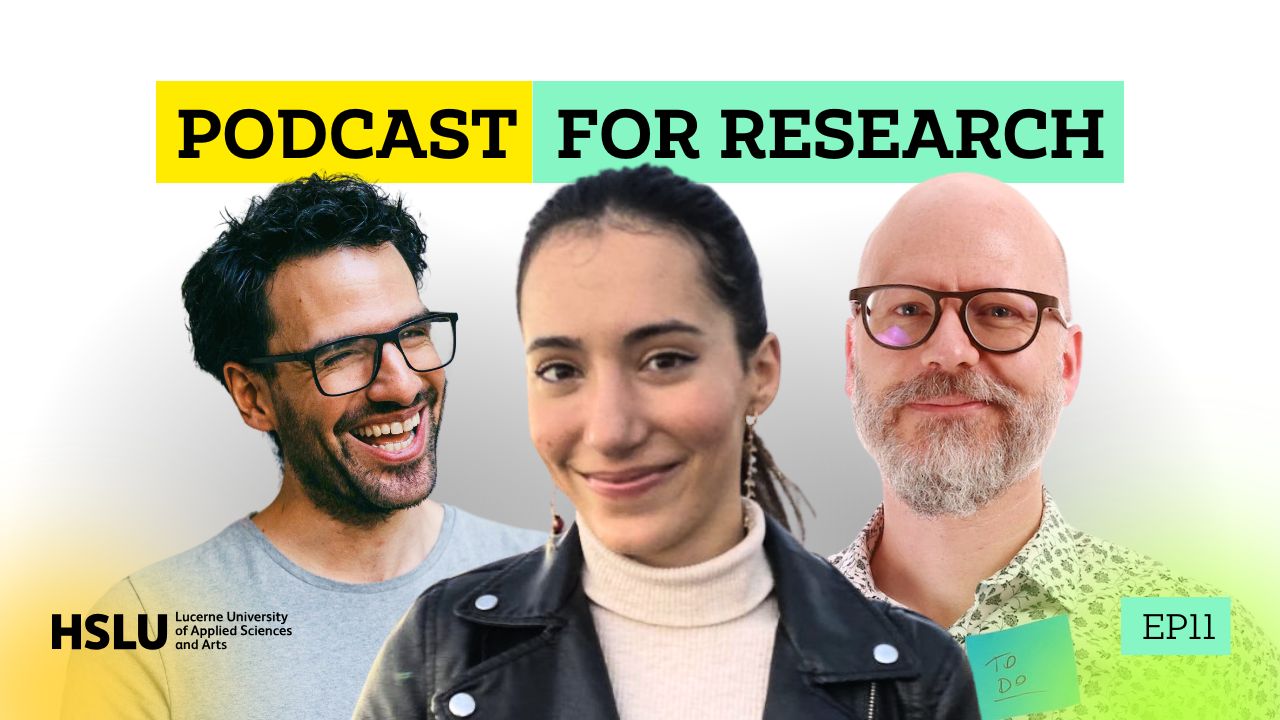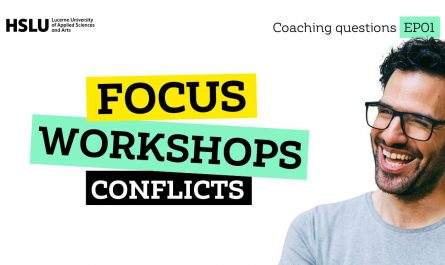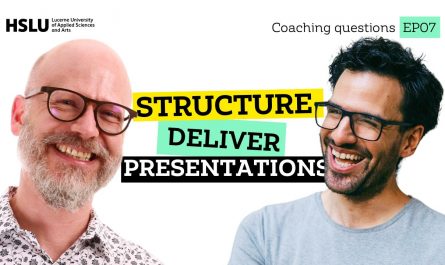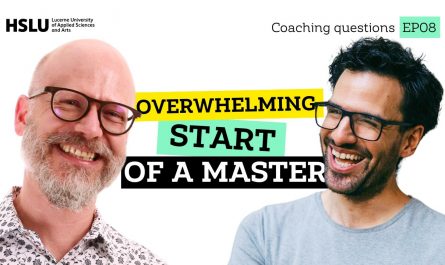In this episode of the coaching notes, we interview Eva Moreno Castillo, a learner from the Master Eco-Social Design program at HSLU, Lucerne University of Applied Sciences and Arts on why podcasts can be a great research tool.
Eva shares the journey of starting her podcast “La guilifó”, which serves both as a research tool and a platform to engage people from various fields and from her local community.
In this conversation we explore:
- the benefits and challenges of doing research publicly
- how it can foster community engagement and enrich the research process.
- why podcasting is a great way to get interviews with busy experts
- how a podcast can also be motivating tool for shy individuals
If you speak Spanish you can see the evolution of Eva’s project on her website.
A big thank you to Eva for taking the time to share and reflect on her research and podcasting journey with the rest of the design community.
Automated transcript
This transcript was automatically generated using Descript. So it contains mistakes and some creative turn of phrases.
Teaser
Eva: Being public it’s one of the best ways for engaging people.
what about the people who are in the shadows? They’re also creating incredible things as well.
It is an amazing excuse to speak with people who are really busy. Because most of the time people never have time to speak with normal students.
But then when I go with the podcast, I’ve not received a “no” to making a podcast since I started.
Meet the Hosts and Special Guest
Daniele: Hey, it is such a pleasure to be here again with some lovely people from the Master design, Master Service Design master Eco Social Design. Master everything from the HSLU, and today I’m joined with Andy. Hi Andy.
Andy Polaine (he/him): Nice to be here again.
Daniele: and we have also the pleasure to have a very special guest with us. Eva.
Welcome Eva.
Today we will explore how can you do your research in a bit of a public way.
But before we go into that, when you go to a birthday party, what’s your one sentence presentation of who you are?
Eva: So when I go to a party, the first thing I say is I come from a rural area and from Spain as well because maybe the party is abroad. And after that I will say. Nice to meet you. I am a really curious person. I studied product design engineering in Sweden and Spain. And after that I was really curious about how do things with hands, because my father is a jeweler. I love making things with hands and also making others be aware of how good is making things with hands, and also speaking with people and connecting these two things together.
Yes, I will say that, but everything in rural areas
Eva’s research podcast
Daniele: One thing that I’d love us to chat a little bit more about is the podcast that you are hosting, which I’ve been listening to and found it very interesting in how, it is a tool for your research thesis in a way also, and the project that you’re doing. Can you tell us a little bit more about that podcast, why you’ve made it, and who do you invite to it?
Eva: I. Had this in mind a lot of times since I started my research. Because for me it’s really interesting to start reading books and everything, but I always had this, something it was lacking for me and I felt it was really the thing of speaking with people. So I started to speak with the grandma from my place.
I started to speak with people who are making amazing projects, but maybe they were not really related with. Exactly my topic, but I had an amazing conversations and some of them they told me, yes, you can record. But you know, recording was like two hours speaking and then I have a like lot of words of a transcript.
That was huge work for me that we didn’t have a lot of time to really go into it again. So I had a lot of thoughts like, how can I make these talks in a way that I can organize them because. Of course, when people just have time to speak with, I can be with them four hours speaking and having an interview.
Of course, I need to settle my time, like I don’t have that much time, but I want to speak with a lot of people. So the first thing, I organize the interviews with questions and then. After this step, I was like, wow, these conversations, they seem super interesting. And then after speaking with these people and I start with other people speaking, I was comparing the conversations and even I referred myself to other conversations and I thought, why not recording them?
And then I can really show to the other people I speak with, what we really have been speaking about. And that’s why I started the podcast. One raining day in my place. I was like, I need to just introduce myself.
And I don’t mind if it’s not really like perfect recorded, if I was not perfect, maybe because I did in Spanish in my own language. But I, I am really aware. It’s not English, my own language, and that’s totally fine, but I also wanted other people from other countries to be aware of what I was doing and what I was speaking with these people.
So I did two and now I had the podcast that I started. I have to say it’s amazing how many people that are listening to it, I didn’t know we would have like 90 people per week listening to. For me, this is really an amazing thing because I receive a lot of comments about even people who wants to be in the podcast. So I was super happy to receive last week like a girl, you know, we are doing a project and I want to also give my voice because most of the times the podcast we listen, they are known people.
They’re famous, they’re doing amazing projects, but what about the people who are in the shadows? They’re also creating incredible things as well. But they are also in the shadow because it’s like expert, we know when you see an expert doing acrobatics. He’s like, he looks really easy.
What he makes is like, wow, this is super easy. But then when you try, it’s really difficult. So maybe they are in the shadow because it looks easy what they do, but actually it’s difficult and it’s really like hard work insight. That’s why I started the podcast.
Challenges and Insights from Podcasting for research
Andy Polaine (he/him): I am really fascinated by this idea of learning in public or working with the garage door half open. There’s a guy called Andy Matuschak, and I think he took this from Maggie Appleton. I mean, Daniele, you do this quite a lot. I’ve done it. I will be doing it more with the next book I write after this one. Basically publishing stuff as I go, some of it at least, or Draft. And kind of thought about it. I think it’s quite kind of motivating for yourself, or at least I find it so. The other way to do it is you do all your stuff, you do it all privately, and then finally you do have the final presentation. And all we see is that little kind of tiny tip of it. But it changes, I think, your relationship to the work and the working if you know it’s gonna be going out there. And I wonder what your experience of that was and Yeah. And also any feedback.
Eva: Yeah, the first thing. You need to be really brave. Because your work is going to be messed up.
Like your project is going to be like in this way you’re going to turn around the all of your project, but at the same time it’s really enriching.
I remember this conversation with teacher Andreas in HSLU. He told us, you know, you are not like colon and you’re going to be here in your rural area, and I’m going to give you a model and this is going to work.
In a place where a community is working now already, but you want to improve, for example, the economic system to give more job to people in rural areas Being public it’s one of the best ways for engaging people, it’s amazing how people engage in the process.
I learn a lot every day and I learning things that I’ve never know I will learn for sure. And also it’s really. Nice to have like a place where, for example, I have a conversation with someone and then I refer to this. This is my research, instead of referring to books, I refer to my podcast.
So when I speak with the public, I refer to my podcast and I know some of the episodes, the first ones, they’re not really engaging and everything, but I told them, go to this minute. Maybe I was not organizing the guides and everything, but I’m learning through learning by doing.
Daniele: most of the time the research we do is kept confidential. We keep the notes and we just share, the main insights, maybe one or two quotes we are quite precious about it. And here there’s one beauty in this, which is making the research a bit more visible, a bit more democratic, it’s not all hidden, but here at least a part is, is made public.
Community Feedback and Impact
Daniele: How has been the feedback, the interaction with the rest of the community? Do you have maybe a few war stories to share about that?
Eva: Actually, yes, we were thinking with the radio of my rural area. They are waiting for me to have more material so then we can have like a dailies, not dailies, but at least weekly. But yes, it’s a thought and also they, I can see how much they engage with it.
And also, I had a really nice comment the other day about the girl, she was speaking about agriculture and how to make it more regenerative. And she said, Eva. You know, I was speaking too hard with a guy. He was really tough. Like he has his mind not open, not outside of the box. And with your post, I have an statement with the expert you invite to really tell them, listen to it, you know?
And I know there is a lot of different podcasts around there about agriculture, but maybe when, you know, a project that is already researching about regenerative in a way of agriculture, rural areas biomaterials. So it’s more like an statement where people can use it and it was super, I was super happy to listen to her.
It was really nice.
Daniele: what are other elements in that journey where you said, oh, I’m so happy I did this because it helped me to learn this, or it helped me to do this?
Eva: It is an amazing excuse to speak with people who are really busy. Because most of the time people never have time to speak with normal students. Like I I don’t have a company myself, and I don’t have a big name, but I have a podcast so I can go to really busy people in companies. And they said every time without a podcast, they told me no.
But then when I go with the podcast, like, you’ll be public. They don’t know how many listeners I have, but I don’t need to tell them. They just know they’re going to be public, so they want to give a voice to that and everyone engages a lot. I think I’ve not received a no to making a podcast since I started. Maybe one because he was busy and we left for the after summer.
But the rest, everyone is really engaged in, in being the podcast. So that’s a really nice point.
Andy Polaine (he/him): I used to have a column for a design magazine and it was great ’cause I could just, you know, anyone I wanted to get in touch with, they used to say, Hey, I wrote this, this column for this design magazine. And they would respond. it’s a smart move. I have a kind of question from the other side though, which is obviously are research interviews for you. And you want people to be as open and honest as possible. And most of the time where the reason those are kept confidential is because people, you know, you want the people to open up. Have you had a sense that people are maybe performing a bit or saying the things they think that they should say or that you want to hear or that other people want to hear, than actually giving you the, the honest answer they might do if it wasn’t a podcast.
Eva: Yes. And one. Person I interviewed I felt she’s one of the busiest bees around and I felt she was at the end of her day and she was busy and she was kind of performing as you said.
So this, I’m trying to see how can we do have balance between, because maybe I can tell them, you know, this is not a podcast where everyone of course can listen to it, but I don’t have like a thousand of people. So feel free. Or also one tool I use a lot is if you say something you regret later, we can cut it and there’s no problem.
But at least I have this data for me. But eh, most of the times the people I interview at first, they want to have the voice. So it’s rather the oversight. So it’s, it also can be the other round of the coin, yeah, it can be that. But most of these people, they want to have a voice.
They want to be listened to, because they always have all of their problems in their mind and they want to speak out loud, these problems. But yeah, I had this experience and I am learning again through the process. So let’s see how this evolve.
Daniele: I don’t know if you have experienced that, but sometimes when I interview people and it’s recorded. You know, it’s kind of like very formal, blah, blah, blah. And then once this recording stops, I usually have a notepad, you know, and then they, they share other things, you know? And so I try kind of to use both where I’m like, Hey, I. There is a recorded official part and so on, and then there is like the, off the record, this has been stopped and where people then say, yeah, but you know, this person, hmm, very difficult to work with him. Or, you know, this situation, ah, can’t say that, but
Andy Polaine (he/him): That’s the classic research trick is never turn off the recorder until you’re out of the door, because it’s always on the journey from wherever you were to the door. Someone goes, well, of course you know what the real problem is around here, you know, and you, oh,
Daniele: i’m curious. So you went to the, to that journey you made podcasts, which has its own success in that community, which is a beautiful tool for you and others.
Advice for Aspiring Research Podcasters
Daniele: What would you recommend to practitioners or students who are doing a research project? What if they say, oh, this idea, I really love it. What would you tell them that you have learned, you know, these mistakes that we do at the beginning while, while we are learning where you say, Hey, maybe these are a few mistakes or a few tips that could help you to get faster in a place where it’s a bit more comfortable.
Eva: That’s a really good question because to be honest, in my surroundings in the school in my environment, I feel from my peers, like they have a really amazing research background in books. I don’t know, eh, documental everything, but they, they really struggle going outside and speaking with people.
And I feel if these. For example, if someone is, is listening to us or watching us. One of these nice things about the podcast is, although you are like a little bit shy, you can have this tool as an excuse not only for the people, but also for yourself to say:
Okay let’s interview the people and let’s make it happen.
And even for me, it was like even a starting point of, okay, I need to really make a guide because it’s going to be public, so I really need to organize it and organize the interviews because sometimes we just go to the interviews. Which is also nice to not just have all of your interviews in a podcast.
I will say it’s always good to have a balance. Sometimes it’s just good to have a conversation without being record, and maybe other day you will feel like, you know, we will record other day. But now I really want to know each other’s and maybe, which is also nice to understand. It’s not like just a tool for everything.
But if you feel, you are going to speak with someone you are not comfortable with, maybe having a guide that you can read because you have the excuse, you have to read this guide, then it’s super easy to make a interview and the people flow really well. I felt, yeah, people and even I interview a charge of my village who is destroying itself.
And there was people from my village who make like a, a song about it. So I interviewed them and then the song is in the podcast as well. So why not people? And giving voice to things that are your stakeholders in your project, not just people.
Andy Polaine (he/him): What have you really learned from this that you would do differently if, if you’re starting again?
Eva: That’s a good question. I will take this question into my podcast.
Yeah, I feel I will. I will do it again. For sure. I never regret about a. Everything I do, although it’s bad things, I know I am, I know I am like you, Daniele. We’re really positive people, but I also, if I say the, if I look at the bad things, I, I, I will do it again for sure. I learn a lot and everything you do, you learn from the process.
Of course, it has bad things, like you need to edit a lot when you have a person in the computer and you are yourself really well recorded. You need to edit every time you change the speaker. But I felt the end point, like everyone was listening to it. And not everyone, but at least someone, some people who tell me yes.
If one person tell me, you know, I was super happy if Daniele told me the first episode. Well, what nice conversation then that makes me continue in the process. You, you learn from everything. So I will never regret about doing it.
Conclusion
Daniele: So the last question is obviously you give us a pitch of your podcast? Tell us where people can find it so that we can add a few more people who will listen to it during the next days.
Eva: So, eh, the podcast is called because it’s a place where we gather ideas like bees gathered nectar and I feel like a bee. And then flowers, eh, I take the nectar and we make honey with it. The podcast is about regenerative rural areas and everything that is not really seen. If you are interested in projects that are make, make from the heart to the hear, just come and listen to me.
It’s in Spotify, it’s in podcast. And if you cannot, if you don’t have this platform, I can send you the audio file. We don’t mind. And thank you so much And yes. And also I have the website if you want to join the podcast or if you want to be part of it because you have a nice thoughts about what I’m doing or your life that you’re doing some something, something cool.
You can go to origin-al.com then you can fill the form and you can be part of the next podcast.
Daniele: Thank you so much Eva. It was really a pleasure to learn from you today and I hope that many people will both discover your podcast, and that it will motivate others to do more of their work in public as it has many benefits for themselves and also for the communities they serve. Thank you so much, Eva. And Andy it was such a pleasure to be with you today.
Andy Polaine (he/him): Thank you.
Eva: Thank you.



